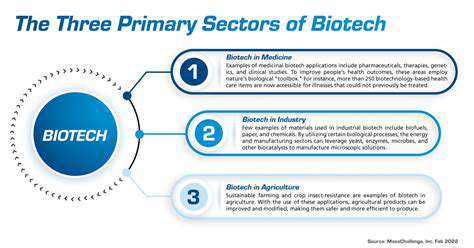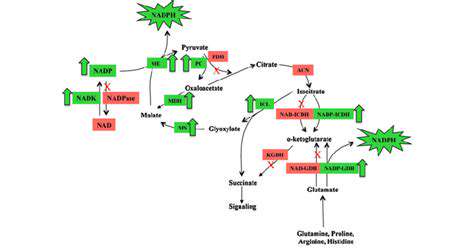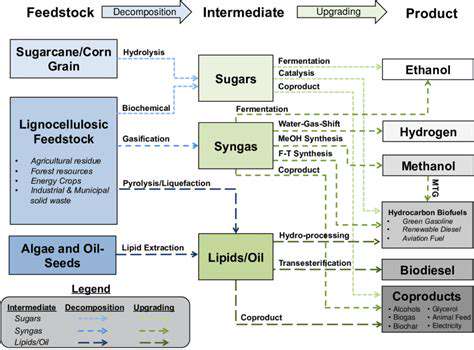Overcoming Challenges and Optimizing Biofuel Production
Improving Feedstock Efficiency
A crucial aspect of optimizing biofuel production lies in enhancing the efficiency of feedstock utilization. Current methods often result in significant losses during the conversion process, impacting overall yield and profitability. Synthetic biology offers innovative solutions by engineering microorganisms to directly utilize less desirable or more abundant feedstocks, such as agricultural waste or algae. This approach minimizes the need for costly pre-treatment steps and maximizes the extraction of valuable compounds, ultimately boosting the overall efficiency of biofuel production.
Further improvements can be achieved by engineering microorganisms to better tolerate the specific conditions of various feedstocks. This includes adjusting their metabolic pathways to efficiently break down complex molecules, such as cellulose and lignin, present in plant biomass. The development of genetically modified organisms capable of thriving on diverse feedstocks, including non-food crops and waste materials, is critical to creating a sustainable and cost-effective biofuel industry. This research area holds great promise for reducing reliance on food crops as feedstocks and mitigating environmental concerns associated with land use changes.
Enhancing Microbial Conversion Efficiency
The conversion of feedstocks into biofuels often involves microbial processes, such as fermentation. Current microbial strains may not be optimally adapted for efficient biofuel production, leading to low yields and high production costs. Synthetic biology provides a powerful tool to engineer microorganisms, such as yeast or bacteria, with enhanced metabolic pathways for biofuel synthesis.
One approach involves modifying the genetic code of these microorganisms to increase the production of specific enzymes that catalyze the conversion of feedstocks into desired biofuel molecules. This could lead to higher yields and faster production times. Another strategy focuses on optimizing the genetic circuits controlling the metabolic pathways, enabling the microbes to efficiently utilize resources and channel energy into biofuel production rather than other cellular processes. This targeted engineering approach can lead to significant improvements in the overall efficiency of biofuel production, reducing costs and increasing profitability.
Furthermore, synthetic biology can be used to construct novel metabolic pathways, enabling microorganisms to produce biofuels that are not naturally synthesized. This capability is particularly important for creating advanced biofuels, such as alkanes, that have superior properties compared to traditional biofuels. The development of genetically engineered microbes capable of producing high-quality biofuels with desired properties is a key area of research in synthetic biology for biofuel production.
By manipulating the metabolic pathways of microorganisms, scientists can improve their ability to convert feedstocks into biofuels. This involves introducing genes that enhance the production of specific enzymes or modifying existing pathways to increase the efficiency of the conversion process. The development of genetically modified organisms for biofuel production is a promising approach toward a sustainable and economically viable biofuel industry.
Ultimately, the use of synthetic biology in biofuel production allows for a targeted and precise approach to optimize the entire process, from feedstock utilization to microbial conversion, resulting in more efficient, cost-effective, and sustainable biofuel production.
The ability to fine-tune the genetic makeup of microorganisms allows scientists to create strains with superior performance in specific conditions. This can lead to higher yields and potentially more environmentally friendly biofuel production.
The Future of Biofuels: A Sustainable Perspective

Harnessing Nature's Power
Biofuels, derived from organic matter, are poised to play a crucial role in the transition to a more sustainable energy future. The potential for biofuels to reduce reliance on fossil fuels is enormous, offering a renewable alternative that can significantly mitigate the environmental impact of transportation and other sectors. This transition is not without its challenges, however, requiring careful consideration of the environmental implications and sustainable sourcing practices.
The advancement of biofuel technology promises to unlock a wider range of feedstocks, from agricultural residues to algae. This diversification of resources can contribute to a more robust and resilient biofuel industry, lessening the dependence on specific crops and reducing the risk of resource conflicts. Innovative methods for processing and refining biofuels are also essential to improve their efficiency and reduce production costs, making them a viable alternative for widespread adoption.
Environmental Considerations and Sustainability
A critical aspect of the biofuel industry's future lies in its environmental impact. Sustainable practices are essential to ensure that the production of biofuels does not compromise the environment or contribute to deforestation, biodiversity loss, or soil degradation. This requires careful consideration of land use, water usage, and the overall ecosystem impact of biofuel production.
The production of biofuels should be undertaken in a way that minimizes its impact on the surrounding environment. The use of waste materials and by-products can significantly reduce the ecological footprint of biofuel production. It's important to consider the potential for carbon sequestration and the overall lifecycle assessment of biofuel production to ensure long-term environmental sustainability.
Technological Advancements and Economic Viability
Continued research and development are vital for the advancement of biofuel technology. Improving conversion efficiency and reducing production costs are key objectives. This includes exploring new feedstocks, optimizing processing techniques, and developing more sustainable biofuel production methods.
The economic viability of biofuels is crucial for widespread adoption. Reducing production costs and increasing efficiency are key to making biofuels a competitive alternative to fossil fuels. Government policies and incentives can play a critical role in fostering innovation and investment in the biofuel sector, driving the development of a robust and sustainable industry capable of meeting future energy demands.
Technological advancements will be vital in overcoming the current limitations of biofuels and enhancing their economic competitiveness. Further research into enzyme production, feedstock utilization, and refining processes can lead to significant improvements in yield and cost-effectiveness.




